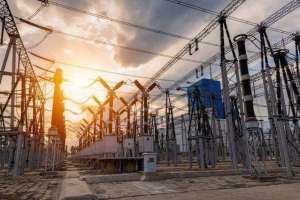
1. To the Chinese and Japanese, the word "crisis" is expressed through two different symbols, which mean "danger" and, respectively, "chance/opportunity". If we have to face the danger, that doesn't prevent us from turning it into an opportunity.
2. The economy is a huge web of contractual and trust ties between traders. For the economy to survive, payments, even adjusted, need to continue, and contracts need to be adapted or revised on the go, in order to ensure their resilience.
3. When there is no more trust in the economy (which is nothing else but trust in the future):
- you irrationally start to stockpile flour, pasta, oil, medical alcohol and toilet paper;
-you lay off people, even though not all the reasons that would force you to do so exist;
-cut lending, because you find the risk too high, or you make it so expensive that it becomes inaccessible;
-you demand advance payments or exorbitant guarantees, which leads to a steep drop in the volume of ongoing contracts;
you reject commercial credit, cheques or promissory notes, and, in general, you reject anything that allows the circulation of goods in the absence of cash;
-you force your tenants to pay their rent in full, even though the commercial or office space cannot be used anymore.
As a result, decisions which seem calculated and rational on an individual level become, through contagion and incremental effects, catastrophic on a systemic level. That is the "economic (corona)virus which we need to face" during the pandemic and particularly afterwards.
Money, liquidity, needs to return to the economy, because otherwise it loses its meaning and functions. The resources need to be allowed to circulate, rather than stored. Excess hoarding, just like irrational stockpiling, are self-destructive for trade, which cannot survive without an uninterrupted supply of the values and resources.
Obstacles can be overcome with the help of the government or of the central bank, which "pumps" liquidity into the system.
Mainly however, the solution needs to come from the traders who had liquidity before the crisis or who collect additional liquidity from the additional growth in their business, "thanks" to the crisis.
The judicial system is gridlocked and will remain so for at least 3-6 months, a period to which have to be add the glut of cases resulting from the "break" imposed by the crisis, as well as from the huge wave of lawsuits generated by the return to "normal" activity with disagreements.
Equity is not just a moral precept, which could be sanctioned anyway with a boycott and public blame, with the consequence of a drastic drop in confidence in the trader that breaks it. Equity is also an implied extension of contracts, as follows from art. 1272 of the Romanian Civil Code.
Good faith is a sign of quality of the trader's contractual behavior, in the absence of which, in time, the faith in the trader and in its products diminishes until it disappears completely. Without trust, there is no trade.
Furthermore, as it follows from art. 11 and art. 14 of the Civil Code, there can be no derogation via a contract from the norms that concern moral standards, and rights must also be exercised in accordance with the latter. In order to be valid, contracts must not violate moral standards. To prevent becoming abusive, rights must not violate moral standards.
The storing of liquidity and the storing of resources are insidious forms of economic abuse, directed against the stability and continuity of enterprise of the abusive trader, as well as against the economy as a whole, overall, as a matrix configured by the contractual and trust relations between traders.
The business sector matrix resembles the plane that goes through air turbulence. If the rules and procedures are followed by all, regardless of the turbulence, the plane can reach the destination intact. A stagnating cell is a major threat because to the body, because it sends every other cell the information about the danger as an indication to stagnate, and subsequently, to self-destruct. On the contrary, a cell that is moving and enters relations with others sends the opposite information, useful to the restarting of the immune system and, therefore, to the automatically programmed recovery of the body. If fairness, good faith and moral standards are honored, the economy, even when it's deadlocked, can recover rapidly.
In the context of the pandemic, in which access to the judicial system and the coercive force of the state are suspended, only equity, good faith and abiding by moral standards can cause the owners of liquidity not to hoard it, but to pump it into the economy instead (even by paying in advance) and to feed the state budget with taxes paid on time. Also, the accumulation and storage of resources can be neutralized as an economic pathogen by calling upon moral precepts which in themselves serve as legal immune system.
If we can do so, we have to work from home and pay off our debts. Let's allow assets to circulate, so we can support the efforts of those who are trying to feed us and heal us. Let's let money do its job, including their job as public money, so we can help those in need, over extended, and placed into technical unemployment, who have lost their homes and cannot afford medical drugs. Without our helpfulness, these people don't have a future. And we can only rely on the community, on cooperation with others, to overcome and prosper. Without cooperation, which involves altruism, we are lost. In times like these can be seen how harmful selfishness is, and how self-destructive the irrational chasing of profits at any cost is.
4. The health and economic crisis caused by the pandemic is not just a threat, but also an opportunity.
The current crisis gives us the opportunity to put in a new light the values of the principle of binding force of contracts and of the principle of the relativity of the effects of the contract.
4.1. The binding force of contracts can be defeated, definitively, or temporary, by acts of God/unforeseeable circumstances/similar events (art. 1634 Civil Code - release of the debtor who cannot pay for those reasons) or the unpredictable nature of the prejudice (art.1533 Civil Code - the debtor is not liable for the unpredictable prejudice).
But the same principle is attenuated by the rule of contractual balance.
Marginally in the Civil Code (the idea is found in institutions such as unpredictability and lesion, as well as as grounds for reducing excessive penalties), contractual balance is essential in trade law, because it is meant to ensure the optimization of the contract, including in the form of its resilience, which is crucial to the stability and continuity of the enterprise. Contractual solidarity provides a healthy and efficient way of adapting or revising the contract, to make it match the initial emolument sought by each of the contracting parties, or, as the case may be, to make it fit to equitably allocate the losses between those parties, ensuring its longevity and and social usefulness. Each party to the contract needs to place the other in the position of achieving the expected emolument (the duty of abnegation) and each party to the contract needs to be capable of sharing with the other the burden of the extra added risk, derived from difficult social and economic circumstances (proportionality). In that sense, we notice that art. 1534 paragraph 2 of the Civil Code frees the debtor from the obligation to pay compensation to those creditors which did not take the reasonable measures to remove or reduce the causes of the loss. We also notice that the legislation on abusive clauses is nothing but an expression of the rule of contractual balance.
Keeping the contractual balance or agreeing with the rebalancing thereof, in order to preserve its social utility, is not just a present handed to the debtors, but a sanitary, self-protective measure, taken by the trader against the consequences of the debtor's insolvency (ruin). When it comes to high volumes of sales and under the circumstances of pre-formulated contracts, a problem of overindebtedness or ruin of just one debtor is multiplied ad infinitum in one's own portfolio of customers, and, through contagion, can lead to the trader's collapse, and incrementally, to the virus being carried across the entire system of the relevant market that the trader operates on (or even to the deadlock of the entire economy).
The rule of contractual balance, including the way it is expressed in the consumer protection legislation, is not against the traders, but instead is meant to protect their companies and to prevent systemic risk. The sanctions applied are meant to prevent (persuasive effect) and to fight (dissuasive effect) the abuse of economic power, an abuse which first of all affects traders, because it decimates their customers, depletes their liquidity and destroys their resources.
Adapting and reviewing the contract to ensure the resilience and continuity of the business will be, in the medium term, the main concerns of the economy, which will cause lawmakers to make unusual changes to the legislation, that previously didn't exist.
4.2. The principle of the relativity of the effects of the contract is neutralized by the obvious fact that a commercial contract cannot be insulated and boiled down to apply "only" to its own parties. A commercial contract is a relationship contract, being part of an ensemble which can only work effectively as a matrix element. The commercial contract is an element of the company, and the company isn't just a money making machine for its owners, but also the center of interest of every individual or entities that depend on its survival (stakeholders). A commercial contract is also an element of a group of contracts, which not only ties the trader to their contracting party, but also to their co-contractors or their subcontractors, in a chain, a circle or causal system, which makes them co-dependent and jointly focused on the object, objective or the common cause of the group of contracts. Finally, the trader is also a member of a group of companies, where the contractual relations with the third parties involve directly, indirectly the dominant entity of the group, with the consequence of an obvious reconfiguration of the notion of party to the contract and of the principle of relativity.
5. The crisis sparked by the pandemic also unveils a macro-economic opportunity, that follows from the shocking finding that long supply chains (based on globalization, free circulation of trades and services, shipping over long routes and imports) no longer function when countries close their borders and drastically limit their exports.
The replacement of these long chains with the far shorter supply chains is unavoidable. Geographical proximity and the local origin of the raw material/goods for the awarding of some contracts will become the, to the detriment of the criteria of low price and the brand of the imported merchandise.
The delocalization of the major factories of the global companies towards areas with cheap workforce will be placed by relocalization, closer to consumers and workforce providers.
6. The malignant entities of society and the economy, which sponsor, and, when necessary, blackmail the plutocracy, can be boycotted and punished morally. In the absence of the judicial system, which will remain on standby for 3-6 months, ethics and solidarity are the only weapons of defense against these evil entities, but they are powerful and effective weapons.
The values that these entities accumulate are nothing more than "trust" and trust can be withdrawn or it can evaporate naturally. When we come through on the other side, we will know who continued or launched foreclosures against debtors ruined by furloughs, we will know who closed their hospitals and sent their doctors and nurses home, for the purpose of "optimizing" costs, we will know who doubled or tripled the prices for basic goods and services, we will know who denied Romanians' physical presence in Europe, who denied financial support from European funds, drugs, medical devices and the import of raw materials, etc. and we will know what sanctions to apply.
























































